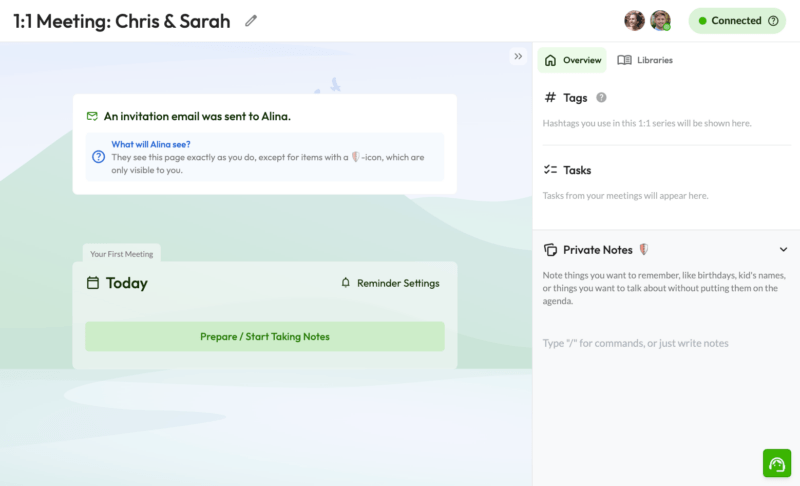The Scrum Master is a key figure in the agile development process. His or her role as a servant leader significantly influences the success of the scrum team. From conflict resolution to promoting self-organization – the accountabilities are diverse. This blog article takes a look at the essential tasks of a Scrum Master and gives practical tips on how they can provide their teams with the best possible support.
Scrum Master Accountability
Scrum Master Responsibilities: 9 areas
A Scrum Master is a key role in an agile development process, especially within Scrum. The main accountability of a Scrum Master is to ensure that the Scrum team works effectively and that the principles and practices of Scrum are implemented correctly, with a clear goal: to deliver the greatest possible customer value in a healthy and sustainable way. Here are some of the key responsibilities of a Scrum Master:
Facilitator and coach: The Scrum Master acts as a facilitator for the Scrum team to ensure that meetings run efficiently, obstacles are removed and agile practices are adhered to. He coaches the team on agile principles and helps to promote an agile mindset.
Remove obstacles: The Scrum Master is responsible for identifying and removing obstacles or blockages that could prevent the team from achieving its goals. This may include working with other teams, managing resource issues or resolving conflicts within the team.
Support of the Product Owner: The Scrum Master supports the Product Owner in maintaining an effective product backlog and ensuring that the requirements are clear and prioritized.
Team empowerment: The Scrum Master promotes the self-organization and autonomy of the team to ensure that it is able to achieve the goals set. He encourages the team to make decisions and solve problems independently.
Continuous improvement: The Scrum Master is accountable for promoting a culture of continuous improvement. This includes conducting retrospectives after each sprint to evaluate performance and identify opportunities for improvement.
Promote communication: The Scrum Master supports communication within the team and between the team and other stakeholders. They ensure that all relevant information is transparent and accessible.
Training and further development: The Scrum Master helps to train new team members in the principles and practices of Scrum. If required, he also gives courses on agile values, for example, or simply on agile theory.
Protection of the team: The Scrum Master protects the team from external disruptions and unnecessary distractions. He acts as a protective shield so that the team can concentrate on implementing the sprint goals.
Metrics and transparency: The Scrum Master helps with the use of metrics to meaningfully reflect on and improve the team's performance. At the same time, they promote transparency by ensuring that information about progress, obstacles and other relevant aspects is accessible to all stakeholders. Tools such as Echometer, which makes continuous improvement measurable, can be helpful here.
It is important to note that the Scrum Master has no hierarchical authority over the team, but acts as a servant leader who supports the team in realizing its full potential.
So now we know what a Scrum Master is accountable for. What other tips can we give the role?

Scrum Master Accountability
14 tips for smart Scrum Masters
The breadth of accountability is definitely there for Scrum Masters – what is a smart approach to the work?
Here are some key tips for a Scrum Master:
Be a servant leader: Understand your role as a servant leader. Your main goal is to help the team succeed, remove obstacles and create an environment in which the team can work optimally.
Promote communication: Value clear and open communication within the team. Encourage the exchange of information, ideas and feedback. Ensure that all team members are heard and that information is transparent.
Continuous improvement: Promote a culture of continuous improvement. Encourage the team to talk honestly about successes and challenges in retrospectives and support measures to continuously optimize the way they work.
Conflict resolution: Be prepared to address and resolve conflicts. Conflicts can hinder the team and it is important to address them early to maintain a healthy working environment.
Remove obstacles: Identify obstacles and actively work to remove them. Your goal is to enable the team to make smooth progress in implementing the sprint goals.
Promote self-organization: Support the team's self-organization. Give the team the autonomy to make decisions and take responsibility. Help to strengthen the skills and self-confidence of the team members. This will make your own job much easier over a longer period of time!
Focus on values and principles: Internalize the values and principles of agile methods such as Scrum. This understanding will help you to support the team's decisions and promote the basic principles in your day-to-day work.
Sharing knowledge: Share your knowledge of Scrum and agile methods with the team when appropriate. Possibly even offer training to ensure that all team members have a common understanding of Scrum.
Agile Customize practices: Recognize that every team is unique. So be prepared to adapt agile practices according to the needs and contexts of your team while staying true to the core principles.
Self-reflection: Reflect regularly on your own work as a Scrum Master. Ask yourself how you can better support the team and actively look for opportunities for your own further development.
Stakeholder involvement: Consider the needs and expectations of stakeholders. Communicate with them regularly to ensure that all relevant parties are informed and support the team's work.
Build trust: Build trust in the team by behaving "predictably", being reliable and standing up for the interests of the team. Trust is crucial for effective collaboration, the lubricating oil for a healthy team – it has a high correlation with psychological safety.
Network development: Build a network with other Scrum Masters to exchange experiences, share best practices and find support. Exchanging ideas with others can provide valuable insights.
- Tools: The right tools can make your work much more efficient. One example of this is Echometer, which makes the continuous improvement of the team measurable for you.

Scrum Master Accountability
A measure for ambitious Scrum Masters
Would you like to make your work as a Scrum Master measurable? Scrum Masters often work very hard – but don't even know whether their work is paying off. This is where the Echometer tool comes into play.
Echometer is a digital tool that helps agile team leads with agile retrospectives and team Health Checks. Whether remote, hybrid or on-site: it makes team coaching measurable and professionalizes your work while saving you a lot of work. Just take a look at our website to find out more: www.echometerapp.com.
"The most important accountability of Scrum Masters is not Scrum, but ultimately "customer benefit"."
Christian Heidemeyer, Psychologist & Scrum Master
Scrum Master Accountability
Conclusion - Scrum Master Responsibility
The Scrum Master is more than a facilitator; he is a catalyst for agile success. By fostering communication, self-organization and continuous improvement, the Scrum Master helps to create a dynamic and efficient working environment. With a balanced mix of coaching, leadership and adaptability, the Scrum Master plays an indispensable role in the pursuit of agile excellence.
Finally, another quick hint: If you would like to know how it feels to develop your team with our tool: You can start an agile retrospective below without logging in, in this case the "Keep, Stop, Start" workshop.
Alternatively, simply forward our website to the responsible colleagues: www.echometerapp.com.







